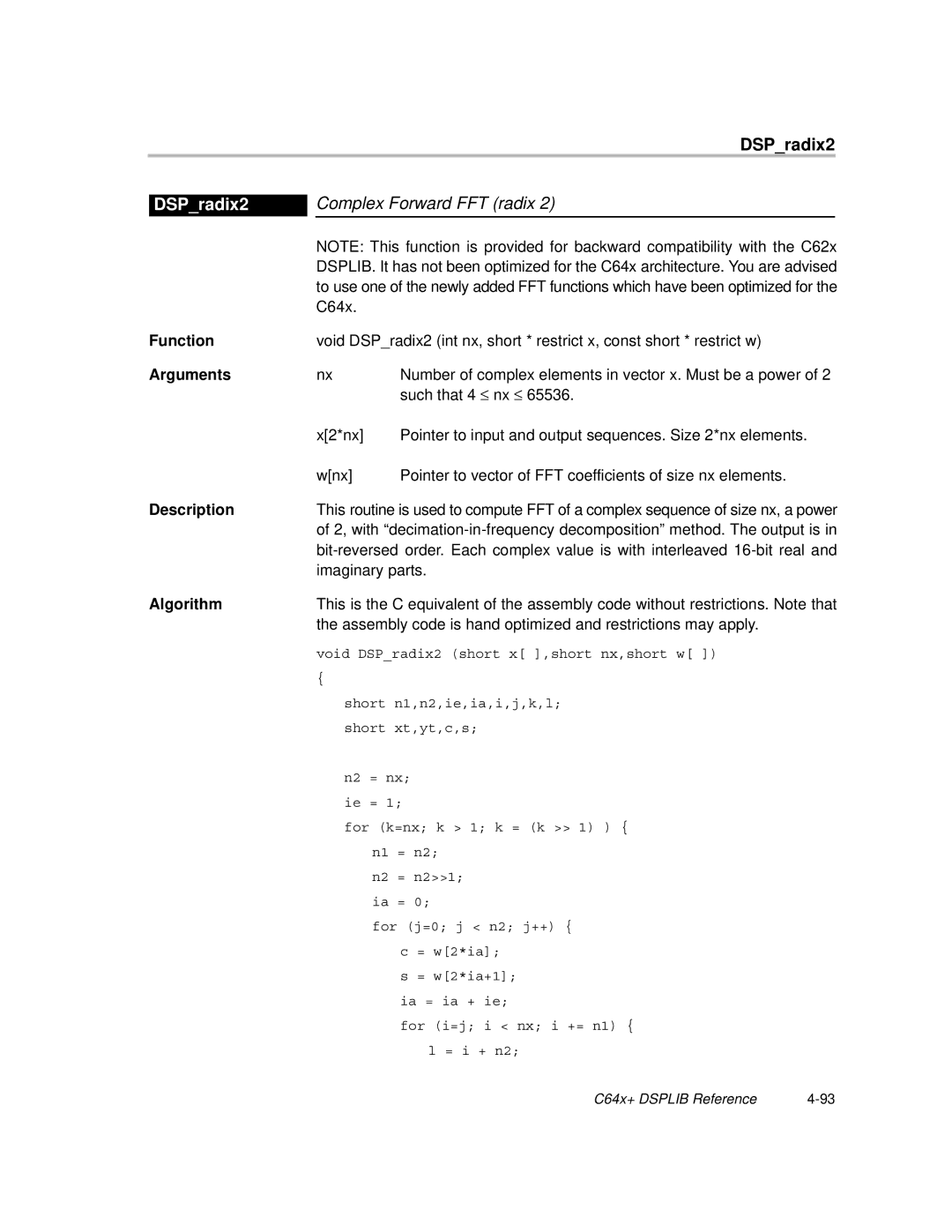DSP_radix2
DSP_radix2 | Complex Forward FFT (radix 2) | |||
|
|
|
| |
|
| NOTE: This function is provided for backward compatibility with the C62x | ||
|
| DSPLIB. It has not been optimized for the C64x architecture. You are advised | ||
|
| to use one of the newly added FFT functions which have been optimized for the | ||
|
| C64x. |
|
|
Function |
| void DSP_radix2 (int nx, short * restrict x, const short * restrict w) | ||
Arguments |
| nx | Number of complex elements in vector x. Must be a power of 2 | |
|
|
| such that 4 ≤ nx ≤ 65536. | |
|
| x[2*nx] | Pointer to input and output sequences. Size 2*nx elements. | |
|
| w[nx] | Pointer to vector of FFT coefficients of size nx elements. | |
Description |
| This routine is used to compute FFT of a complex sequence of size nx, a power | ||
|
| of 2, with | ||
|
| |||
|
| imaginary parts. | ||
Algorithm |
| This is the C equivalent of the assembly code without restrictions. Note that | ||
|
| the assembly code is hand optimized and restrictions may apply. | ||
void DSP_radix2 (short x[ ],short nx,short w[ ])
{
short n1,n2,ie,ia,i,j,k,l; short xt,yt,c,s;
n2 = nx; ie = 1;
for (k=nx; k > 1; k = (k >> 1) ) { n1 = n2;
n2 = n2>>1; ia = 0;
for (j=0; j < n2; j++) { c = w[2*ia];
s = w[2*ia+1]; ia = ia + ie;
for (i=j; i < nx; i += n1) { l = i + n2;
C64x+ DSPLIB Reference |
